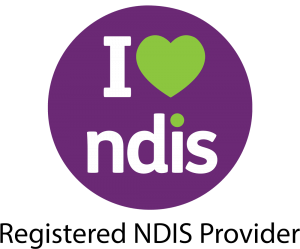The NDIS, or National Disability Insurance Scheme, is a bit like a big umbrella that covers various types of support for people with disabilities in Australia.
It’s all about giving participants the right kind of help so they can live their lives more fully and independently.
The scheme is pretty broad, covering everything from allied health services to NDIS housing.
Now, where does NDIS support coordination fit into this?
Well, it’s like a key piece of the puzzle. Support coordination helps make sure that the support you get from the NDIS is just right for you.
It connects you to the services you need and helps manage them so they work best for your situation.
In a way, it’s like having a guide who knows the NDIS inside out and can help you make the most of it.
It’s an essential part of the framework, making sure that the support provided is not just available, but also effective and personalised.
In this article, we’re going to dive into the three levels of NDIS Support Coordination, explore how each works to support participants, and help you understand which one fits your goals best.
Is NDIS support coordination the same as NDIS plan management?
It’s common to mix up NDIS Support Coordination with NDIS Plan Management, but they’re actually quite different.
Plan Management focuses on the financial management of your NDIS plan. It involves managing the funding for the supports and services you receive.
A Plan Manager helps you keep track of your funds, takes care of invoicing, and makes sure service providers are paid.
On the other hand, Support Coordination is more about connecting you with the right services and helping you make the most of your plan.
It’s about understanding your needs and linking you to the best supports available rather than managing the financial aspects.

So, while they both aim to make your NDIS experience smoother, they do so in different ways.
The 3 levels of NDIS support coordination — a guide to personalised assistance
Jumping into the NDIS is like opening up a treasure chest of support options. It is designed to offer people with disabilities the help they need in a way that fits them perfectly.
Now, at the heart of making the most of these options are the three levels of NDIS Support Coordination.
Level 1: Support connection
The first level of the NDIS Support Coordination is where your interaction with the scheme starts. It’s tailored to help you get a solid understanding of your NDIS plan and its benefits.
Objectives
Here are the three main goals of level 1 support:
- Understanding your plan
You’ll receive a clear explanation of your NDIS plan, making sure you’re aware of the range of supports and services available. This helps you understand how the plan can cater to your specific needs. - Connecting with services
This level focuses on linking you with the right service providers, aligning them with your plan’s goals and needs. It’s about making sure you’re paired with services that can truly benefit you. - Getting started
You’ll get guidance on taking the first steps with your plan, including initiating services and managing appointments. This helps ease you into the NDIS, making the start less overwhelming.
Key functions
At this level, the main functions revolve around setting a strong foundation for you to utilise your NDIS plan effectively:

- Plan explanation
You’ll receive a detailed walkthrough of your plan, helping you understand each part and how it relates to your needs. This includes breaking down complex terms into understandable language. - Service provider introduction
We’ll introduce you to various service providers, giving you options that best fit your requirements. This includes explaining what each service can offer you and how they align with your plan. - Practical advice
You’ll get practical tips on how to incorporate the services into your daily routine, maximising the benefits of the NDIS offerings. This advice is tailored to your lifestyle and specific circumstances.
Impact and benefits
The benefits of engaging with Level 1 support can significantly influence your experience with the NDIS:
- Confidence boost
Gaining a thorough understanding of your plan boosts your confidence in making informed decisions about your care and support. - Efficient connection
Quickly connecting you with the right services saves time and reduces stress, making the initial NDIS experience smoother. - Strong foundation
Laying a solid groundwork ensures that as your needs evolve, you’re well-prepared to adapt and maximise your NDIS plan.
Level 2: Coordination of supports
Level 2 in NDIS Support Coordination is about enhancing your plan’s effectiveness. This level focuses on effectively coordinating and managing your supports.

Objectives
The main goals of Level 2 are:
- Holistic support coordination
Coordinating all your supports, including informal, mainstream, and funded, so they work together effectively. This includes syncing various services to meet your holistic needs. - Building capacity
Assisting you in developing the skills to understand, implement, and manage your supports. This aims to promote your long-term independence as a participant in the NDIS. - Crisis resolution
Offering support during challenging times, including managing any crises that arise. This guarantees you have the right support during tough situations.
Key functions
The focus at this level is on coordinating and managing your supports to improve their overall effectiveness:
- Comprehensive coordination
You’ll receive help in coordinating all aspects of your supports, ensuring a seamless integration of services. This includes managing appointments and coordinating with various service providers. - Skill development
We’ll work with you to develop the necessary skills for managing your supports independently, enhancing your ability to take charge of your NDIS plan. - Crisis management support
Providing expert assistance in handling crisis situations, ensuring you have support and strategies in place to navigate these challenges.
Impact and benefits
The benefits of engaging with Level 2 support can significantly improve your NDIS experience:
- Seamless support integration
Ensuring that all your supports are well-coordinated and work together efficiently, enhancing your overall experience with the NDIS. - Increased independence
By helping you develop management skills, you gain more control over your life and supports, encouraging independence. - Crisis support
Having robust support during crises provides peace of mind and confidence that you are well-equipped to handle unexpected challenges.
Level 3: Specialist support coordination
Level 3 is the most detailed level in NDIS Support Coordination, designed for individuals with particularly tough or risky situations.

Objectives
The main aims of Level 3 are to:
- Specialised support
This level provides targeted assistance for intense needs, such as severe physical disabilities or significant mental health issues. It’s about giving focused care that understands and meets these specific challenges. - Risk mitigation
Here, the aim is to actively work on reducing risks associated with complex conditions or challenging living situations. It involves creating safer environments and strategies to handle potential issues. - Handling complex situations
Assistance at this level includes help in dealing with tough scenarios, like transitioning from a long hospital stay to supported independent living. It’s about making this shift smoother and more manageable.
Key functions
At this level, the functions are all about providing in-depth, specialised support:
- Expert coordination
Offering expert planning and coordination in situations like severe disability management or navigating mental health services. This includes working closely with various professionals for coordinated care. - Risk management
Identifying and managing risks in scenarios such as living with multiple disabilities or behavioural challenges. It involves putting plans in place to address these risks effectively. - Solving complex problems
Tackling and resolving issues to plan for the best possible outcomes, especially in situations like dealing with complex service delivery systems. This means finding practical solutions to difficult problems.
Impact and benefits
The benefits of Level 3 support are crucial for those with complex needs:
- Personalised guidance
Receiving specialised advice and support for managing challenging and high-risk situations. This guidance is invaluable in ensuring effective handling of complex scenarios. - Safety and well-being
Maintaining safety and well-being in environments that might be riskier due to complex needs. This includes both physical and mental health safety. - Effective management of complex situations
Handling multifaceted situations with professional expertise can greatly improve the overall quality of life and daily functioning.
Image from: https://www.ndis.gov.au/providers/working-provider/support-coordinators
As you can see, each level has its own way of doing things, designed to meet different needs and situations.
Whether it’s just some basic advice or more complex, specialised support, these levels make sure you, and everyone who shares the same journey as you, receive the right kind of assistance.
Choosing the right level of support
Deciding on the right level of NDIS Support Coordination can feel like a big step.
Think about what you need right now and what you might need in the future.
If your needs are straightforward, Level 1 might be enough. But if things are more complex or you expect changes, Levels 2 or 3 could be better.
Remember, you’re not alone in this decision. There are people and resources to help guide you.
Here are some tips to help you make the best choice for your situation:
- Assess your personal needs and goals
Start by looking closely at your own needs and goals. What support do you need to achieve these goals? Understanding your personal situation helps in choosing the level that aligns best with your needs. - Consult with a qualified NDIS support coordinator
Talking to a qualified and registered NDIS support coordinator can be a game-changer. They can offer personalised advice based on your specific situation, helping you understand which level of support might work best for you. - Take into account long-term plans and changes
It’s important to think about the long term. What might change in your life? How might your needs evolve? Choosing a support level that can adapt to your future plans and any potential changes is key. - Use available resources and support networks
Don’t forget to use the resources at your disposal. Online guides, support networks, and other information sources can provide valuable insights into making your decision. - Consider your financial situation
Finally, consider your budget. Different levels of support might have different costs. It’s important to choose a level that fits within your financial means while still meeting your needs.
Choosing the right level of NDIS Support Coordination is all about balancing your current and future needs with what’s available to you.
Take your time, gather information, and seek advice where needed. Remember, this choice is about finding the best support to help you live your life to the fullest.
With the right level of NDIS support coordination, you’re setting yourself up for success on your terms.






